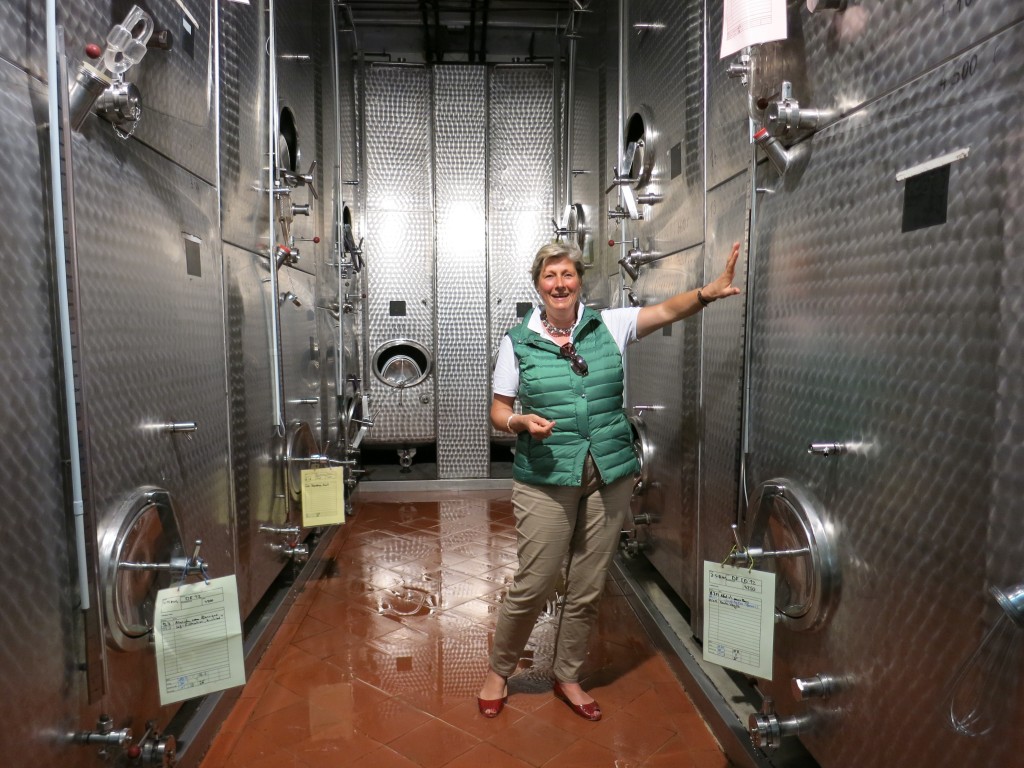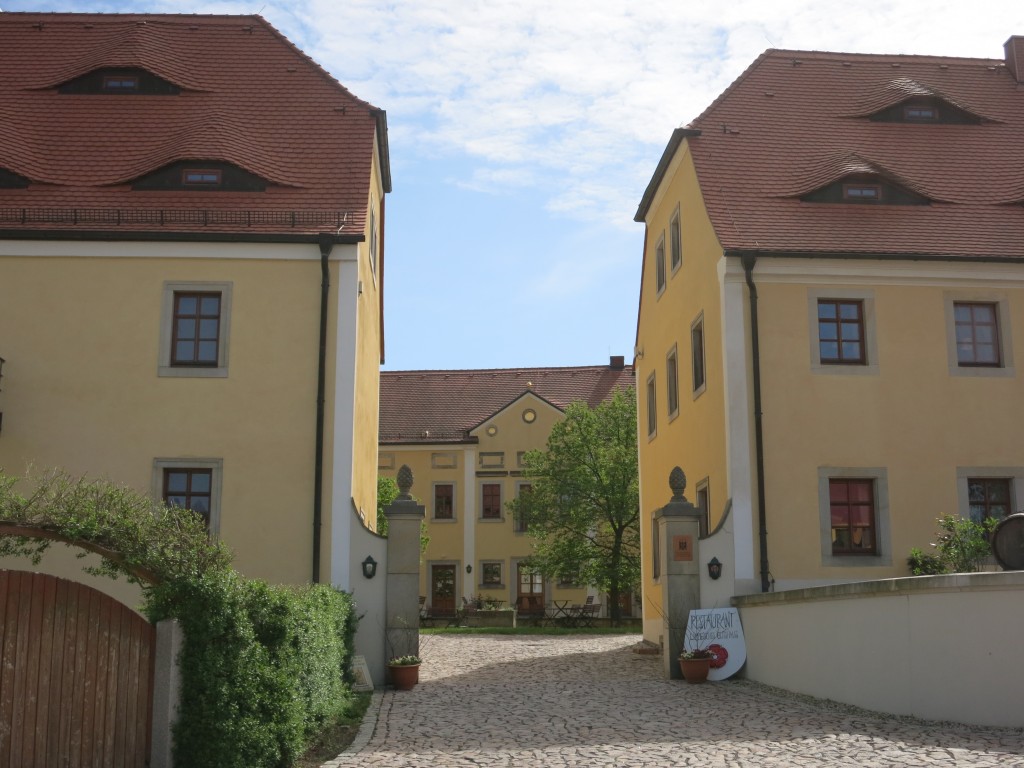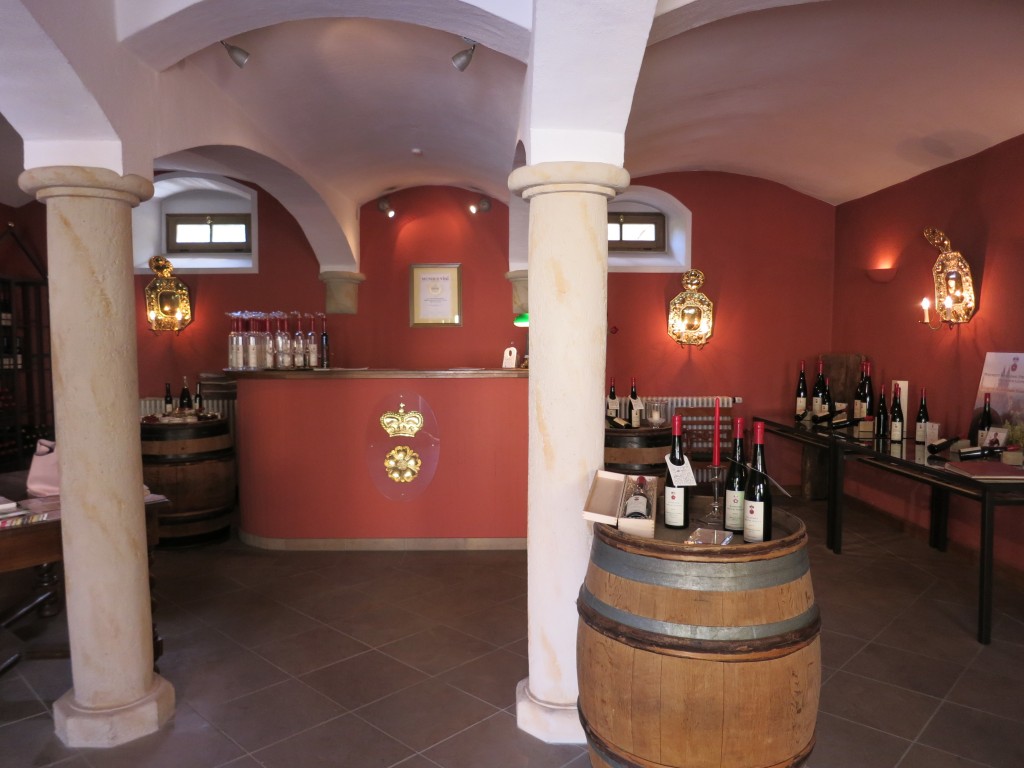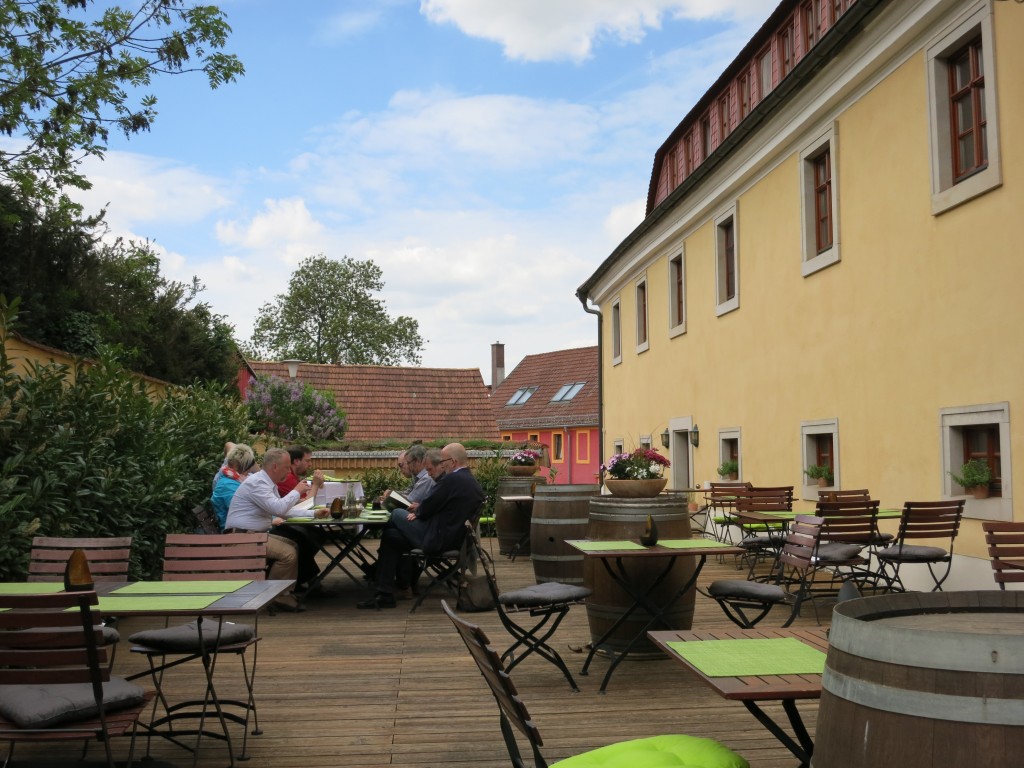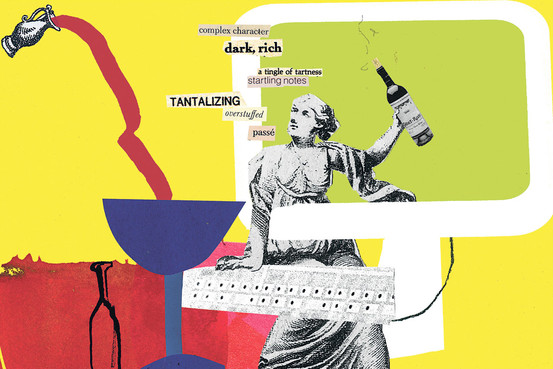Regal Wines: Sachsen’s Schloss Proschwitz
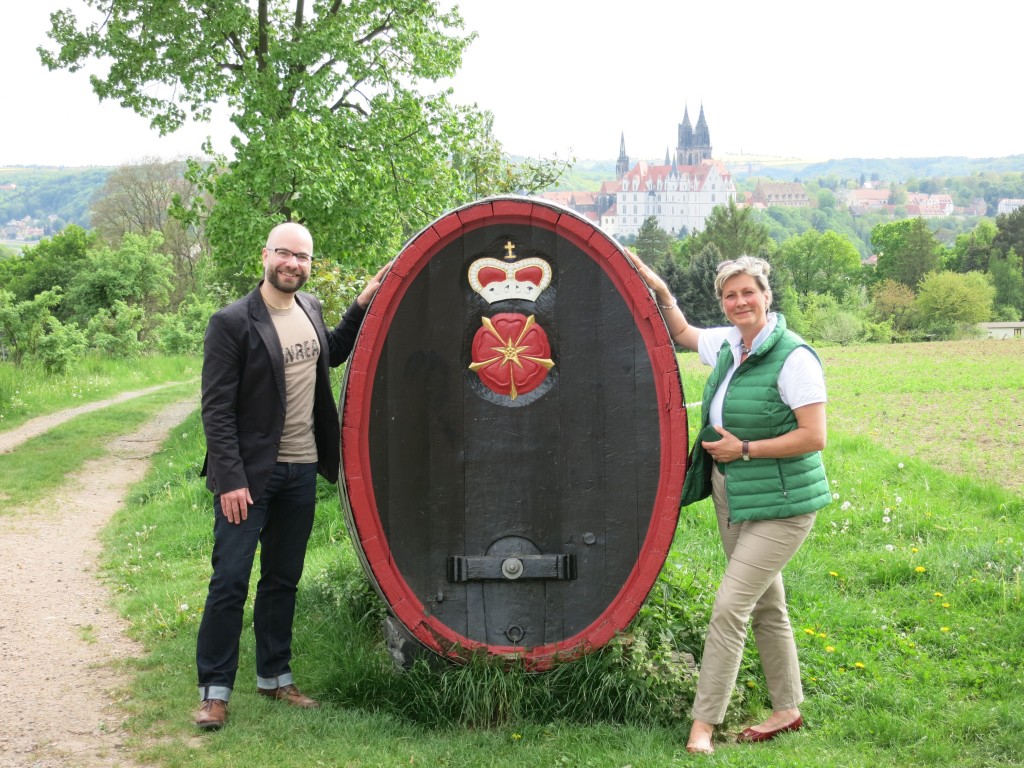
The author and Alexandra Prinzessin zur Lippe in the Schloss Proschwitz vineyards overlooking Meissen
Schloss Proschwitz ranks among the unlikeliest — and therefore most delightful — wineries I’ve ever had the pleasure to visit. First, consider its location in Sachsen in former East Germany, at about the same latitude as London. The fact that the Elbe River and its south-facing bluffs create a microclimate well-suited to grape growing is a bit of a miracle. (You can read more about Sachsen in general here.)
Then there is the winery’s tumultuous history, which I learned about when I met Alexandra Prinzessin zur Lippe for a tour and tasting. A former television news reporter, the unfailingly gracious Prinzessin (that’s what everyone called her at the winery) ordered flutes of sparkling rosé for us as we sat on patio. As we sipped this unusual fruity and rather smoky sparkler made from Frühburgunder (Pinot Madeleine), she began relating the winery’s dramatic post-war story.
The parents of the current owner, the Prinz zur Lippe, did not fare well when the Soviet Red Army invaded eastern Germany. Communists did not look kindly on royalty. They imprisoned his parents and expropriated all their property. Fortunately they were not murdered — instead, after several months spent apart in prison, the Soviets “chucked them into West Germany” with only the clothes on their backs, the Prinzessin exclaimed, her understandable indignation not quite concealed.
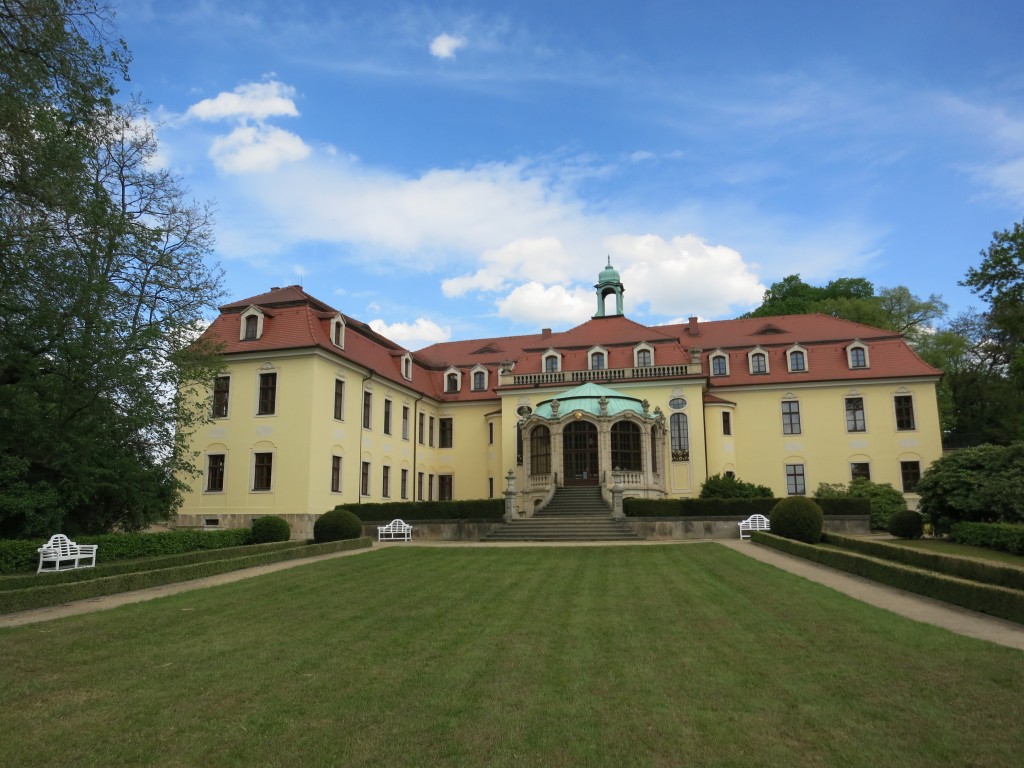
Schloss Proschwitz (Proschwitz Palace), ancestral home of the zur Lippe family, now used for weddings and other events
In need of housing and income, Christian Prinz zur Lippe took a job as a gardener, working for his mother-in-law. His son, Georg Prinz zur Lippe was not, as you might expect of someone with that title, raised in unabashed luxury. He built a successful career for himself as an agricultural engineer, and then the Berlin Wall fell.
His father, still alive at this time, suggested that Georg attempt to recover the family’s property in East Germany. But because the property had been expropriated by the Soviets, not East Germany, the government refused to give anything back. So Georg did things the hard way, negotiating with landowners and convincing banks to loan him money. Eventually, he managed to buy back a large portion of the family’s original vineyards.
The story did not end there, however. The Prinz zur Lippe was not welcomed with open arms back to his ancestral home. In the minds of the East Germans, “My husband was the incarnation of evil,” the Prinzessin explained. “From the West. A prince. He had property that had been expropriated. And he was an entrepreneur!” The East Germans had been brainwashed into thinking of capitalists as evil, and that mindset didn’t immediately change with the fall of the Wall. Georg lived for a year in a house on a hill overlooking his new vineyards, during which time all of his neighbors refused to speak with him. It isn’t always easy being the prince.
He also didn’t win any friends when he replanted his vineyards with historically correct but lower-yielding grape varieties, nor when he started employing the latest viticultural methods. Many thought he was insane to drastically reduce pesticide application and restrict yields by cutting off half the grapes and using them to make balsamic vinegar.
But finally Georg and Alexandra started to win the local people over. The sympathetic mayor of the bluff-top town of Zadel offered to sell them a courtyard of historic but dilapidated buildings for their winery. After extensive renovations, Schloss Proschwitz opened a winery, shop and restaurant on the property. It became the first in Sachsen to be admitted to the prestigious VDP, Germany’s top winery association.
In the tasting room, the Prinzessin poured several delightful wines, leaving no doubt as to the potential of Sachsen terroir. A rare Goldriesling (a seldom-cultivated Muscat crossing) had an enticingly floral and spicy aroma, food-friendly green-apple tartness and a mineral finish. The Proschwitz Elbing, an ancient and now-unpopular variety cultivated since Roman times, had a surprisingly colorless hue, a powdered candy aroma and fun, juicy acids. Either would be perfect for a pool party.
We also tried some more serious wines, such as the 2014 Weissburgunder Kabinett from the Schloss Proschwitz Vineyard. This Pinot Blanc (Weissburgunder translates literally as “White Burgundy”) smelled fresh and spicy. It tasted fruity and cheerful but very focused, with clear minerality. The 2012 Weissburgunder from the Heiligenkreuz Vineyard, in contrast, had more white fruit and cream in the aroma. It tasted very ripe, even with a note of caramel, and it finished on quite a spicy note. I never thought to age Pinot Blanc, but the 2012 clearly illustrated the benefits of a couple of years in the bottle.
But when we reached the 2013 Weissburgunder Grosses Gewächs, the Prinzessin became concerned. As I smelled this Pinot Blanc, I let out a laugh and a whoop and said “Yeah!” just a little too loudly. Her eyes widened, and she asked the woman behind the desk to bring bread.
“We’ll be having lunch soon…” she said, clearly convinced I was drunk. But I had spit everything I’d tasted up to that point. It smelled so good, this wine, that I couldn’t help but laugh and shout. “Grosses Gewächs” translates as “Great Growth,” a designation something like Grand Cru in Burgundy. And this wine was great.
I would have guessed it was a white Burgundy, but not a Pinot Blanc. The aroma had such richness, with ripe fruit and fresh butter and wood. And the flavor! Drinking it was like driving in a car with an expert at manual transmission — it shifted with incredible suppleness from ripe, ripe fruit to classy acids to focused spice. It was a gorgeous, elegant wine.
I had to have it. Terrified of what I might have to spend for a wine of this quality, I looked at the price list on the bar. It cost 25€, or about $28 a bottle. I must admit I’m not used to spending $28 on a bottle of wine, but it seemed like a crazy bargain in this case. Who knew Pinot Blanc could reach such heights?
We had yet more delicious wines over lunch, notably a surprisingly ripe 2011 Spätburgunder (Pinot Noir) redolent of red currants and earth. And I thought, my God! How wonderful how completely the communists had failed. They took everything from the zur Lippe family except one set of clothes per person. And yet here they were, once again making truly world-class wines from their ancestral vineyards, providing jobs to about 100 people. The power of history — and the power of the entrepreneur — couldn’t have been clearer.

